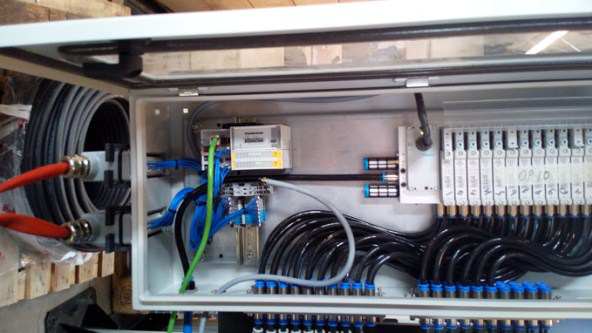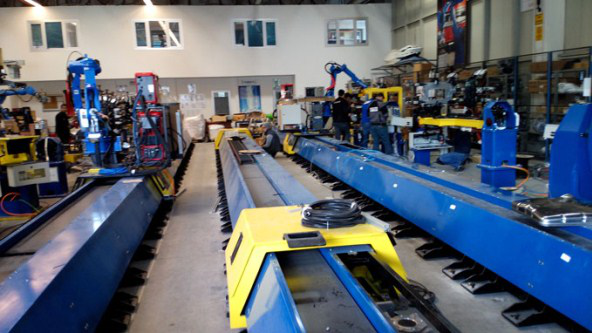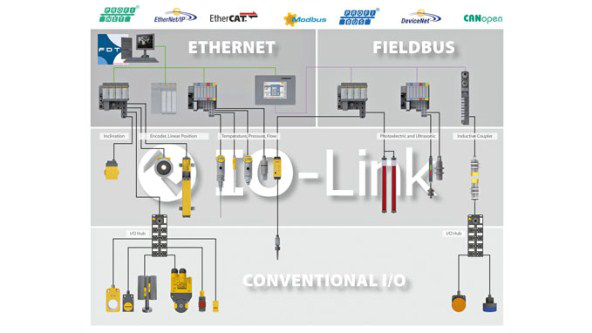The automation of a production line for exhaust systems enables Turck to demonstrate the flexibility of its BL20 multiprotocol gateway in conjunction with the IO-Link-capable TBIL hubs
The Turkish system integrator Teknodrom Robotik ve Otomasyon is planning and implementing the construction of a production line in Turkey for one of the leading manufacturers of exhaust systems. The greatest challenge in the project was to provide the required level of flexibility for the line, which needed a variable, particularly robust and EMI resistant automation technology due to the welding applications in place. In its search for a supplier, the company came across Turck with its extensive portfolio of sensors, connection technology and I/O systems, which could easily meet the demanding requirements involved, not only due to the I/O-Link functionality provided.
One of the leading manufacturers of exhaust systems chose Turck’s BL20 modular I/O system in order to provide a highly flexible I/O solution. A special feature of the new production line is the fact that fieldbus systems have to communicate with different controllers – an ideal application field for Turck’s BL20 modular IP20 I/O system. The multiprotocol gateways, which speak Profinet, EtherNet/IP and Modbus TCP and feature the necessary I/O slices, enable the BL20 system to bring different types of signal to the controller and also link different valve blocks of the production line. The system integrator Teknodrom Robotik ve Otomasyon was responsible for the installation and integration of the entire automation solution. Teknodrom spoke to Turck about the sensor and I/O requirements for the new production line already in the design phase.
IO-Link ensures efficient production
The user benefits enormously from the flexibility that IO-Link provides for the requirements of this system. Turck’s BL20-4IOL gateways with IO-Link master modules and the IO-Link-capable IP67-TBIL I/O hubs bring up to 16 switching signals from the field to the control cabinet via a single three-wire cable. The TBIL functions as an IO-Link slave, bringing 16 binary signals to the IO-Link master on the BL20 gateway. This considerably reduces wiring effort and wiring errors. The alternative passive junctions with large multipole cables are more expensive and time consuming.
Flexibility with IO-Link
Another benefit of IO-Link in the production line becomes apparent when different tools are changed: “The clamping devices for the products have to be changed frequently in the plant. The IO-Link modules for BL20 offer here a high level of flexibility. During the installation, we can quite simply adapt the BL20 system and add more signals or reduce them. “With every additional expansion or upgrading of the plant we benefit from this flexibility,” says Selim Çağatay, the control technician responsible at the system integrator.
Efficiency through decentralized IP67 I/Os
Even at the production lines for MIG (metal inert gas) the smart IO-Link solution is significantly simpler, faster and more economical to implement than multipol cable systems. It also makes a major contribution to quality assurance. All signals are collected via Turck’s TBIL IP67 IO hubs and then forwarded to the BL20 system via a single three-wire line. IO-Link master and multiprotocol gateway handle the additional communication with the controllers via Ethernet. Thanks to the digital IO-Link transmission, the user can save on the expense of shielded cables and other EMC measures.





